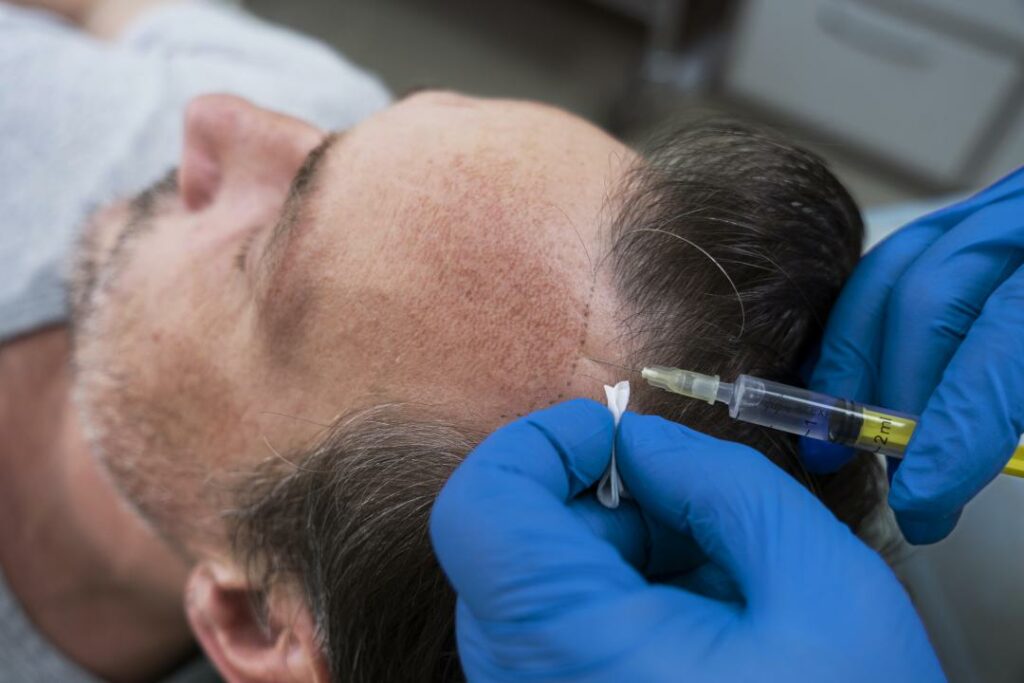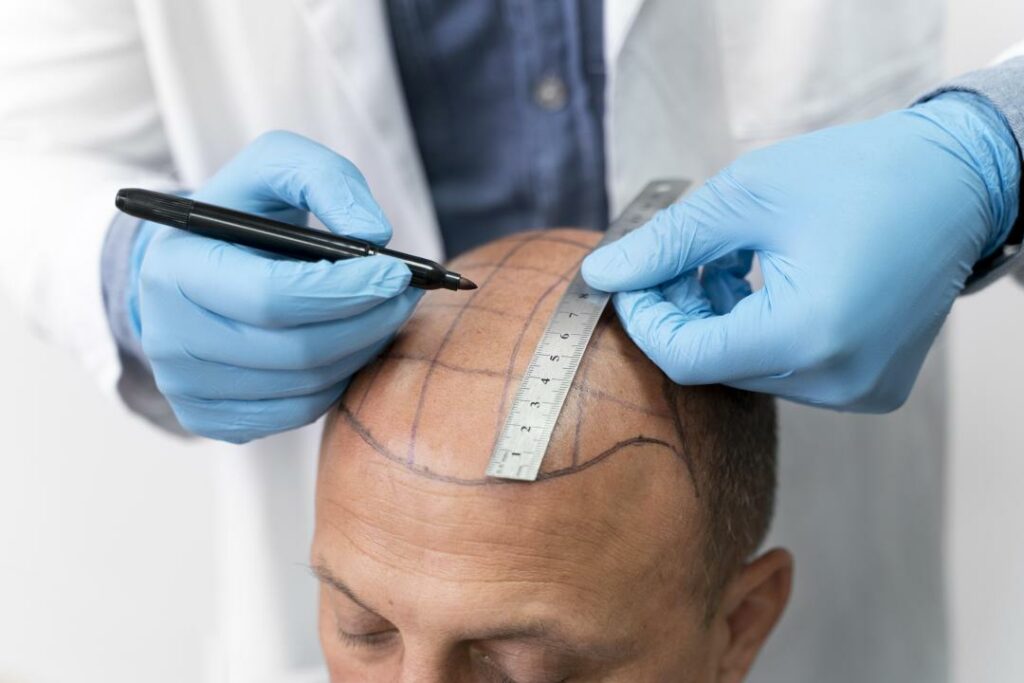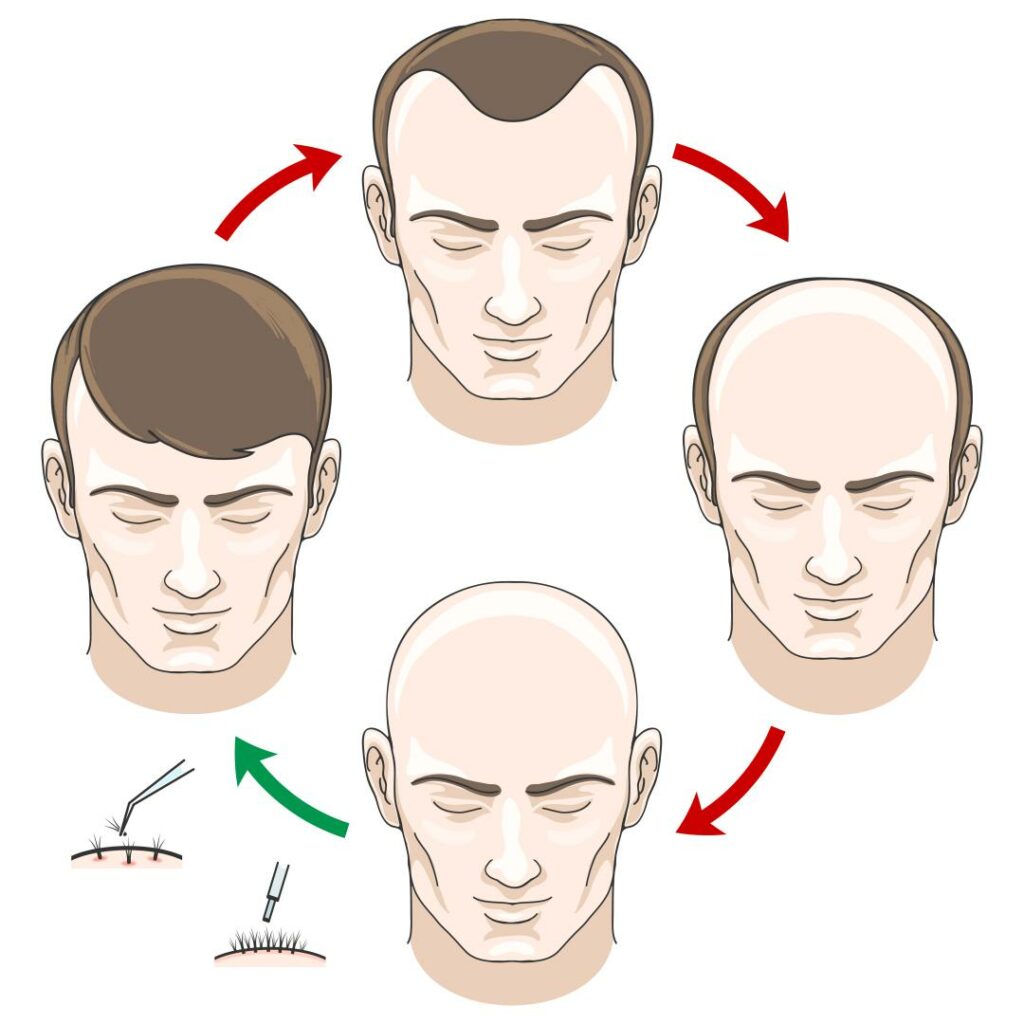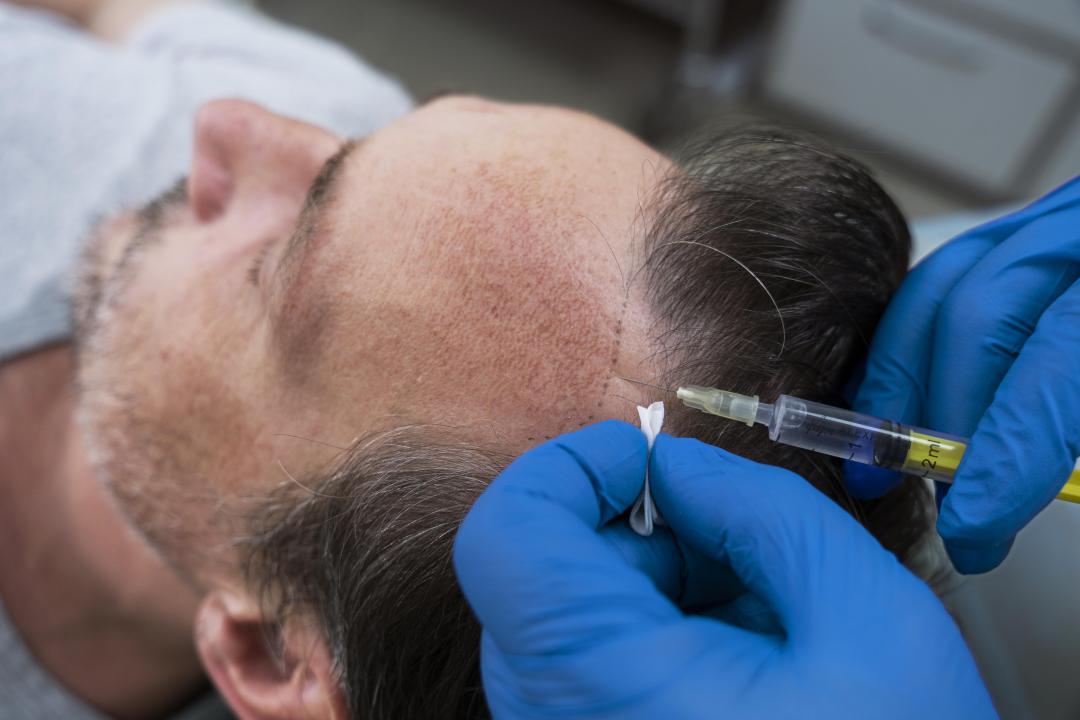Table of Contents

In this article, we will answer the question of “Does Hair Transplant Hurt?” and what you can do to have a comfortable and successful surgery. One of the top worries when thinking about getting a hair transplant is how painful it will be. Although the technique is generally seen to be safe and minimally invasive, some patients may feel some discomfort during or after the operation. Fortunately, there are measures you can take to lessen discomfort and make sure you got a painless hair transplant.
Understanding Hair Transplant Surgery
Before delving into the topic of “Does Hair Transplant Hurt?”, it’s important to understand what the surgery entails. Hair follicles are removed from the donor area, which is often the back of the head, and transplanted to the recipient area during a hair transplant process (usually the front or crown of the scalp). The majority of patients can return to work and other regular activities within a few days to a week after the treatment, which is normally carried out under local anaesthetic.
Does Hair Transplant Hurt During the Procedure?
Does Hair Transplant Hurt? is one of the most often asked questions. The majority of patients report only minor discomfort during the treatment, while every patient’s experience is different. You won’t experience any discomfort as the hair follicles are removed or transplanted thanks to the application of topical anesthetic on the scalp.

Does Hair Transplant Hurt After the Procedure?
Although the process itself is usually painless, some individuals may feel uncomfortable or in pain in the days after the operation. The most common causes of this are bruising and swelling near the scalp, which can be treated with ice packs and over-the-counter painkillers. Once the hair follicles repair and new hair growth starts, some patients could also suffer some slight discomfort or itching.
What Can You Do to Painless Hair Transplant Procedure?
There are various precautions you may take to guarantee a painless hair transplant procedure. First, make sure to strictly adhere to your doctor’s pre-operative instructions, which may include refraining from using particular drugs and consuming alcohol in the daysbeforeo the surgery. Make careful to let your surgeon know if you are in any pain during the procedure so that they can modify the anesthetic as necessary.
Follow your doctor’s post-operative instructions very carefully after the surgery. These recommendations may include using ice packs, taking painkillers as directed, and avoiding intense activity for a while. Also, it’s crucial to refrain from scraping or scratching the scalp because doing so increases the risk of infection or harm to newly transplanted hair follicles.

What Can You Expect During Recovery?
Within a few days to a week of the treatment, the majority of patients are able to resume work and other regular activities. To ensure that the scalp heals completely, it’s crucial to refrain from intense activities for at least a few weeks, including heavy lifting and exercise. In order to preserve the scalp throughout the healing process, your doctor could also advise staying out of the sun or wearing a hat.
Most patients report only minor discomfort during the treatment, even if hair transplant surgery may occasionally cause discomfort or agony. You may guarantee an effective and painless hair transplant procedure by carefully following your doctor’s recommendations and taking measures to reduce pain during recovery. If you’re thinking about getting a hair transplant, make sure to speak with a trained and experienced surgeon to go over your options and decide which course of action is best for you. If you decide to get a hair transplant in Turkey, Synergy Health Travel will help you choose a reliable clinic and plan your travel and lodging so that you can recover without any worry.
Feel free with contact us 🙂
Follow us on instagram : Synergy Global




